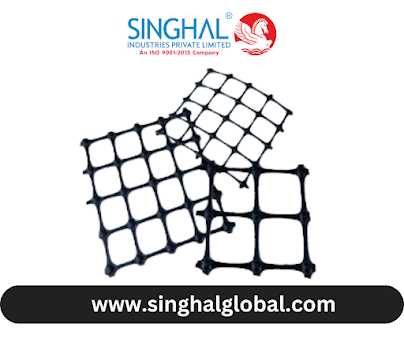Enhancing Logistics Efficiency with FIBC Jumbo Bags and PP Sling Bags
Flexible Intermediate Bulk Containers (FIBC), commonly known as jumbo bags, and Polypropylene (PP) sling bags play pivotal roles in modern logistics, offering efficient solutions for transporting bulk goods across various industries. As exporters in India increasingly rely on these versatile packaging solutions, understanding their benefits, applications, and frequently asked questions (FAQs) becomes essential.
Understanding FIBC Jumbo Bags
FIBC jumbo bags, also known as bulk bags or big bags, are large containers made from flexible fabric designed to store and transport dry, flowable products such as sand, gravel, chemicals, and agricultural products. They typically range in capacity from 500 to 2000 kilograms or more, tailored to meet specific weight and volume requirements. These bags are constructed from polypropylene (PP) or other durable materials, ensuring strength and resilience during handling and transit.
Benefits of FIBC Jumbo Bags
FIBC Jumbo Bags, crafted from durable woven polypropylene fabric, are renowned for their strength and flexibility. These bags can carry extensive loads, ranging from agricultural produce to industrial raw materials, with capacities reaching several tons. Their robust construction ensures reliability in challenging environments, including transportation via road, rail, or sea freight. PP Sling Bags, on the other hand, are designed for ease of handling, featuring integrated lifting straps that facilitate safe and efficient loading and unloading operations.
Applications Across Industries
The versatility of FIBC Jumbo Bags and PP Sling Bags extends across diverse sectors. In agriculture, these bags are instrumental in storing and transporting grains, seeds, and fertilizers. In construction, they facilitate the handling of sand, cement, and aggregates. Pharmaceutical and chemical industries rely on them for safely transporting powders, granules, and hazardous materials. Moreover, these bags are pivotal in the mining and recycling sectors for handling minerals and recyclable materials.
Key Players in the Indian Market
In the competitive landscape of the Indian market for FIBC Jumbo Bags and PP Sling Bags, several key players have emerged, each contributing significantly to the industry's growth and innovation. Exporters specializing in FIBC Jumbo Bags in India are pivotal in meeting both domestic and international demands for these versatile packaging solutions. These exporters leverage India's strategic geographical location and robust manufacturing capabilities to cater to diverse sectors such as agriculture, chemicals, and construction. Gujarat, known for its industrial prowess, stands out as a hub for FIBC Jumbo Bag exporters, benefiting from state-of-the-art facilities and a skilled workforce that ensures high-quality production standards.
Among these players, exporters based in Ahmedabad play a crucial role in the market, particularly in the production and distribution of PP Sling Bags. These bags, designed for efficient handling and transportation, find extensive use in various industrial applications where safe and reliable lifting solutions are paramount. PP sling bag exporter in Ahmedabad capitalize on the city's manufacturing expertise and logistical advantages to supply PP Sling Bags that meet stringent quality standards and customer specifications. Their ability to customize products according to client requirements enhances their competitiveness in both domestic and international markets.
The dynamic nature of these key players is underscored by their commitment to innovation and sustainability. Many FIBC jumbo bag exporter in India are adopting eco-friendly practices, such as using recyclable materials and reducing carbon footprints, to align with global environmental standards and meet the evolving preferences of environmentally conscious consumers. This proactive approach not only enhances their market presence but also strengthens India's position as a reliable supplier of FIBC Jumbo Bags and PP Sling Bags on the global stage. As the market continues to expand, these key players remain at the forefront, driving industry trends and shaping the future of bulk packaging solutions in India and beyond.
Environmental Considerations and Sustainability
As sustainability gains prominence, FIBC Jumbo Bags and PP Sling Bags are evolving to meet eco-friendly standards. Manufacturers are increasingly using recyclable materials and implementing processes that minimize environmental impact. Customers can choose from a range of eco-conscious options, including bags made from recycled plastics or biodegradable materials, aligning their logistics operations with corporate sustainability goals.
Conclusion
In conclusion, FIBC Jumbo Bags and PP Sling Bags represent indispensable components of modern logistics and supply chain management, offering robust solutions for transporting bulk goods across diverse industries. As FIBC jumbo bags exporter in Gujarat seek efficient and reliable packaging solutions, these bags continue to evolve, incorporating advanced materials and design innovations to meet the evolving demands of global trade. By understanding their benefits, applications, and environmental considerations, businesses can optimize their logistics operations while contributing to sustainable practices in the industry.
Frequently Asked Questions (FAQs)
1. What are the weight capacities of FIBC Jumbo Bags?
FIBC Jumbo Bags can typically carry loads ranging from 500 kg to 2000 kg, depending on their design and intended use. Specialized designs can accommodate even heavier loads for specific industrial applications.
2. How do PP Sling Bags ensure safety during lifting operations?
PP Sling Bags are equipped with reinforced lifting straps that are securely attached to the bag structure. These straps are tested for strength and durability to ensure safe lifting of heavy loads without risk of tearing or failure.
3. Are FIBC Jumbo Bags suitable for food-grade materials?
Yes, FIBC Jumbo Bags can be manufactured using food-grade materials and comply with international standards for handling food products. They are used extensively in the agricultural sector for storing and transporting food grains, pulses, and other agricultural produce.
.png)

.png)
Comments
Post a Comment